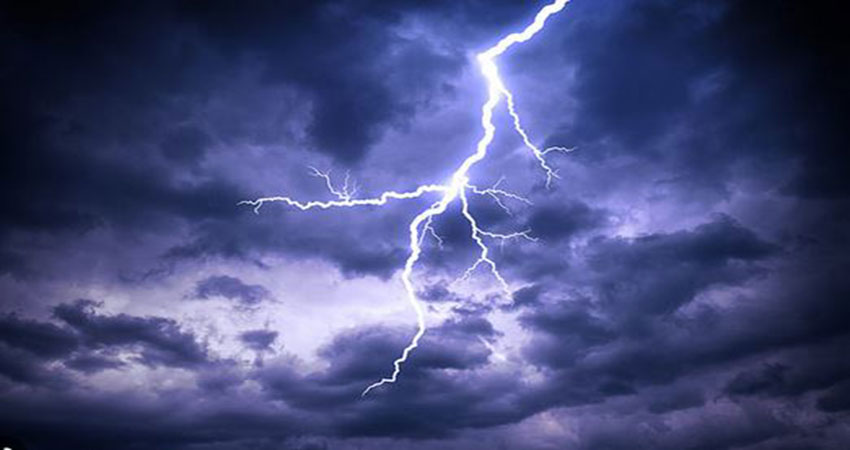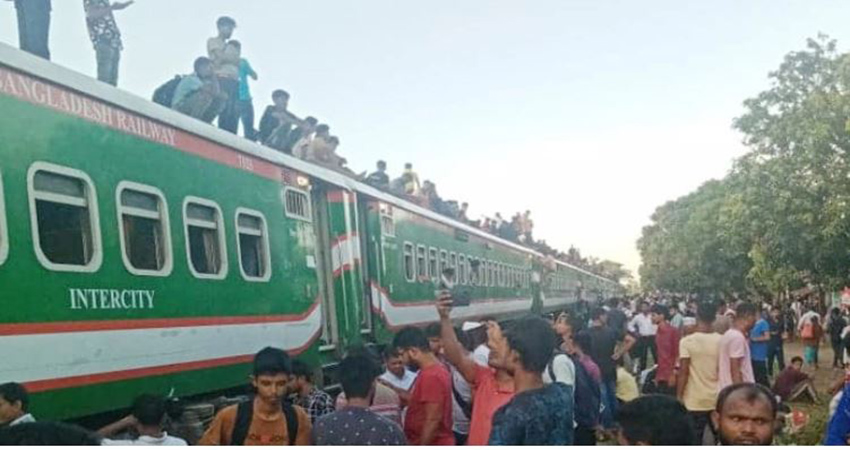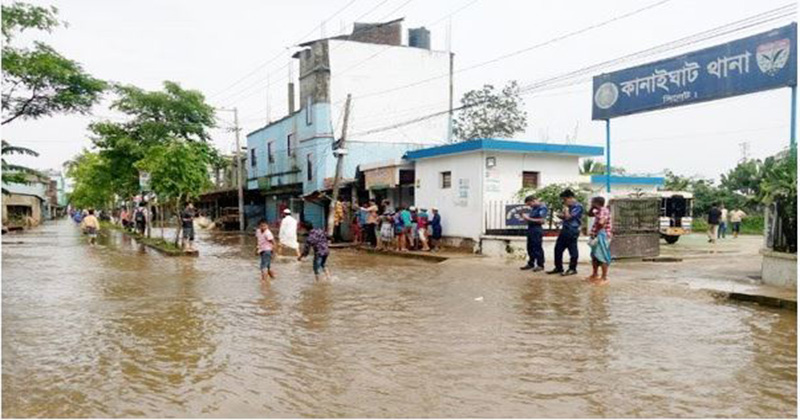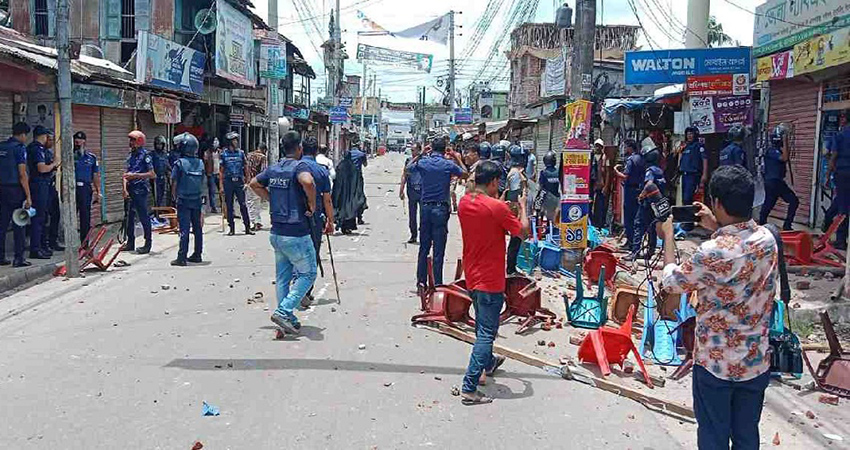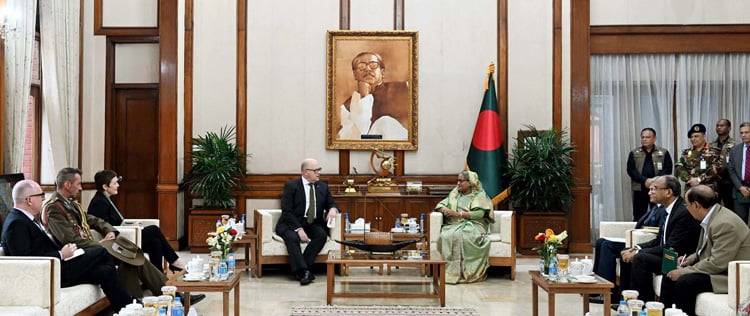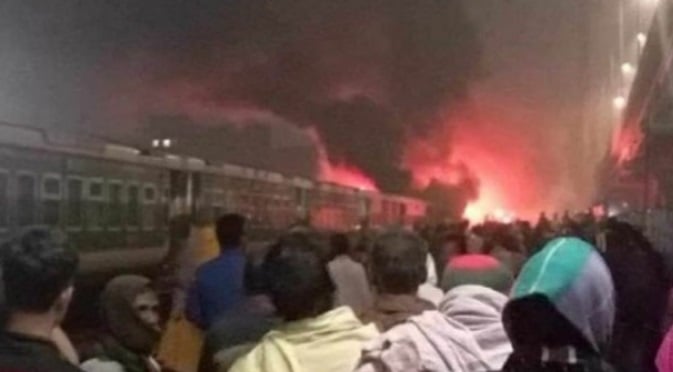Dilwar Khan
A Departmental River Workshop was convened in Mymensingh, jointly organized by the Bangladesh Environmental Lawyers Association (BELA), Association for Land Reforms and Development (ALRD), Water Rights Forum, and Other Image Development Organization. The event took place at the Green Point Party and Training Center in Mymensingh Town Hall on Wednesday last.
Mohammad Anwar Hossain, the Additional Divisional Commissioner (General) of Mymensingh, graced the occasion as the chief guest. Farid Ahmed, Director of Mymensingh Local Government Department (Joint Secretary), Shatabdi Roy, Scientific Officer of the Fisheries Department, Anil Chandra Burman, Additional Chief Engineer of LGED, Md Akhlaq Ul Jamil, Executive Engineer of the District Water Development Board, and representatives from Kotyali Circle Additional Police were present as guests of honor. Super Md. Shahinul Islam Fakir also attended.
During the workshop, Syeda Rizwana Hasan, a Supreme Court lawyer and CEO of BELA, delivered a welcome speech and Khalid Mahmud, Assistant Professor of the Irrigation and Water Management Department at Bangladesh Agricultural University, Mymensingh, presented the article titled "River Affairs of Mymensingh Division." Participants included individuals from various organizations dedicated to Mymensingh's rivers, NGO representatives, teachers, students, members of civil society, journalists, and individuals working on rivers in Tangail and Jamalpur districts.
Syeda Rizwana Hasan, in her welcome speech, emphasized the workshop's primary objectives, including a detailed understanding of Mymensingh division's rivers, recognition of the importance of river preservation, mapping river movements, and connecting with activists. Other goals included gathering information about rivers (both formal and informal), assessing the impact of sand extraction, identifying legal needs for the river conservation movement, and strategizing to involve local communities, authorities, and experts at the national level.
Following extensive discussions during the workshop, participants concurred that no river in Bangladesh remains healthy. Nearly all rivers are plagued by encroachment and pollution. Rivers suffer from waste dumping, industrial discharges, encroachment, unregulated sand and stone extraction, haphazard dredging, and unplanned infrastructure construction such as roads, bridges, and culverts. Notably, the National Rivers Commission's published list does not encompass all rivers in Mymensingh division. The workshop identified 44 rivers in Mymensingh, Jamalpur, and Tangail, with Sutikhali, Khiru, Banar, Someshwari, Sutia, Mahadeo, Betai rivers identified as critically endangered, and Aimun river in Muktagacha considered lost.
Mohammad Anwar Hossain, Additional Divisional Commissioner (General) of Mymensingh Division, affirmed the government's commitment to river preservation and expressed willingness to act upon the workshop's recommendations.
Subsequently, participants proposed several recommendations, including:
Ensuring unobstructed river flow by removing infrastructure hindering natural river courses, eliminating dams and barriers at river sources.
Defining river boundaries according to the CS Map (1954) for all national rivers.
Raising public awareness and community engagement in river protection.
Establishing area-based prevention committees for river preservation.
Halting sand and stone extraction via unregulated dredging, illegal encroachment, and pollution.
Publicly disclosing the list of river encroachers.
Implementing proper waste disposal practices in cities to prevent river contamination.
Treating industrial chemical waste through ETP (Effluent Treatment Plant) and implementing zero waste discharge systems.
Removing unplanned small bridges and culverts on rivers while constructing larger, elevated bridges.
Initiating international efforts to address upstream national dams.
Implementing legal measures for river protection, offering legal assistance to victims, and increasing administrative monitoring and law enforcement.
Engaging all media outlets in the "Save the River" movement.
Establishing a local network platform with journalists and civil society to identify and catalogue all divisional rivers, issue ID cards and health cards for rivers, and disqualify river polluters and encroachers from elections.
These recommendations aim to enhance river preservation efforts in Mymensingh and beyond.












